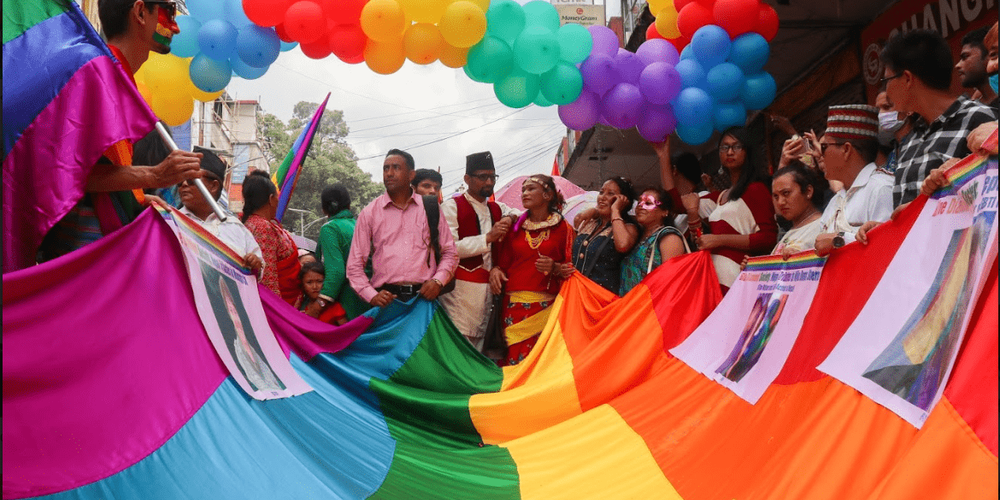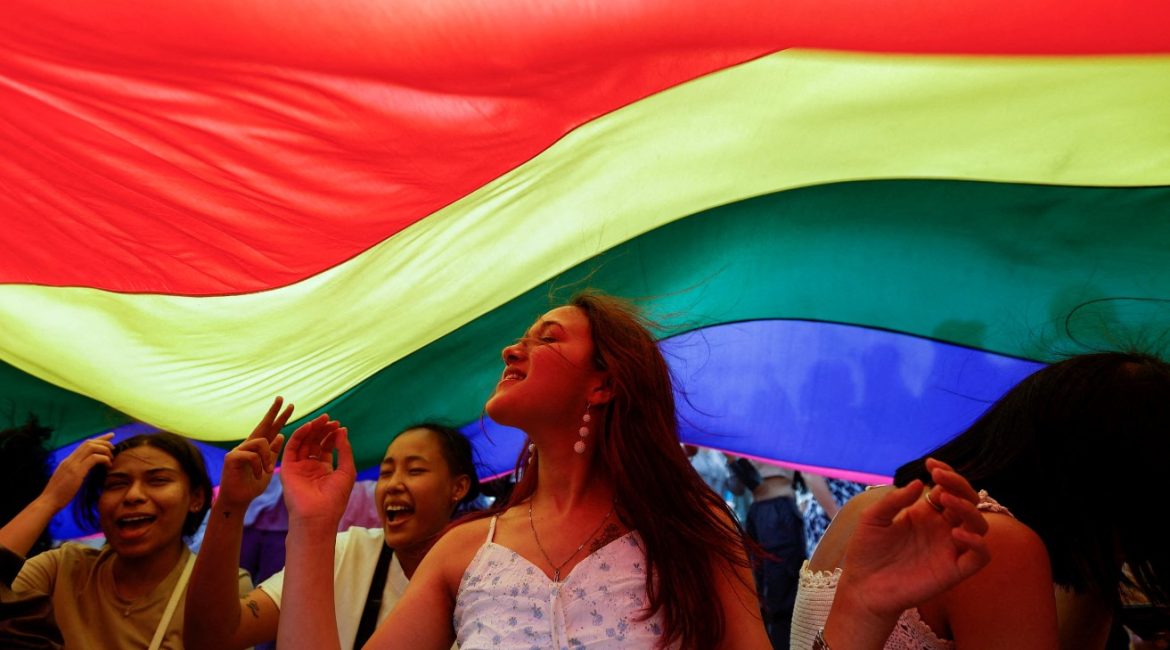In a groundbreaking move, Nepal has officially recognized its first-ever marriage between individuals of the same gender, marking a significant milestone in the ongoing battle for LGBTQ+ rights. This historic union brought together Maya Gurung, a 36-year-old transgender woman who had been legally registered as male, and Surendra Pandey, a 26-year-old man who was born and identifies as such.This achievement has been celebrated by LGBTQ+ activists as a crucial advancement towards bolstering their rights and recognition.The act sets an important precedent in the country and is being hailed by LGBTQ+ rights advocates as a victory in their fight for equality and acceptance.
Maya and Surendra’s marriage highlights the importance of developing legislation and public support to recognize and respect diversity of gender identifications and orientations.
The official registration of their marriage took place at the Dordi township office, located in the Lamjung district of northwestern Nepal. Despite the fact that Maya has not changed her gender status in official documents, from the point of view of legal norms, their union is recognized as a same-sex marriage.
“We are both extremely happy and our happiness is shared by everyone in our community,” Surendra Pandey shared in a telephone interview with the BBC.
Maya Gurung added: “Fighting for rights is a difficult task and we have achieved it.
This marks a significant milestone that paves the way for a more favorable future for upcoming generations. The couple initially crossed paths nearly a decade ago at a restaurant. “We saw each other and felt mutual attraction immediately,” Maya shared in an interview with Nepali newspaper The Kathmandu Post. “After a few weeks of dating, we decided to live together. Nevertheless, our families and the wider society did not endorse our decision. We later relocated to Kathmandu, and even though we had a wedding ceremony in a temple five years ago, our marriage lacked legal recognition.”
The newlyweds are hopeful about opening a joint bank account and gaining the right to co-own the land they’ve purchased. Yet, their most significant aspiration is to adopt a child once their financial situation stabilizes.

The initial official registration of same-sex marriage in Nepal occurred five months following an interim ruling from the Supreme Court that allowed same-sex couples to legalize their unions. In this verdict, the Supreme Court strongly encouraged authorities to promptly initiate the formal registration of such marriages, without waiting for legislative amendments.
However, despite this decision, on July 13, the district court in Kathmandu declined to record their marriage, arguing that the Supreme Court’s order merely constituted a recommendation to the government and did not constitute a legally binding directive.
Ganesh Khatri, the head of the second district of Dordi township responsible for marriage registration, mentioned that Maya and Surendra were the first same-sex couple to request marriage registration in the district. “We were initially taken aback. We reviewed their application and requested them to submit the required documents. Once they provided all the necessary documentation, the marriage was officially registered,” Khatri stated. “This marks the first time that a same-sex marriage has been officially registered, not only in Nepal, but possibly in the entirety of South Asia.”
Apart from Nepal, Taiwan stands as the sole Asian country that officially acknowledges same-sex marriage.Sunil Babu Pant, the founder of the Blue Diamond Society, a prominent LGBTQ+ rights group in Nepal, emphasized that this marks a major triumph for sexual and gender minorities who have persistently advocated for equal rights, including the legal acknowledgment of their marriages.
Sunil Babu Pant, a former Member of Parliament and the visionary behind the Blue Diamond Society, described this moment as a historic milestone. He conveyed his optimism that this development would empower same-sex couples to establish shared bank accounts, co-own properties, and embrace all the privileges and rights enjoyed by heterosexual married couples.

